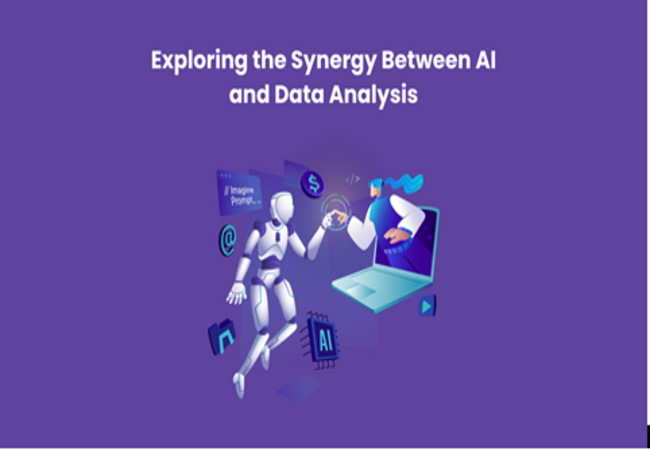Data Science has emerged as one of the most dynamic and sought-after career paths in the 21st century. With the rise of Big Data and the increasing reliance on data-driven decision-making, the field of Data Science offers exciting opportunities and immense potential for those looking to make a mark in this domain. Whether you are considering a Data Science Certification or exploring career options, let’s answer the question Why Choose Data Science as a Career? in this blog.
Table of Contents
- The Data Revolution: A World of Possibilities
- Why Choose Data Science as a Career?
- The Role of Artificial Intelligence in Data Analysis
- The Future of Data Science and AI
- Conclusion
The Data Revolution: A World of Possibilities
The lifeblood of companies and organisations is data. Massive volumes of data are produce with each click, purchase, and interaction. Big Data, a term used to describe this profusion of data, is a useful tool that may be use to solve challenging issues, obtain new perspectives, and accelerate company expansion.
The field of data science gives us the ability to derive meaning from data. To extract patterns, trends, and useful insights from data, it integrates subject experience, programming, statistics, and machine learning skills. These insights enable organisations to innovate in previously unthinkable ways, optimise operations, and make well-informed choices.
Why Choose Data Science as a Career?
In light of our data-driven society, the following are strong arguments in favour of thinking about a career in data science:
- High Demand for Data Scientists: Data scientists are in high demand. An increasing number of organisations are actively looking for experts who can guide them through this data-rich environment as they realise the significance of data. Jobs in data science are often among the best jobs, according to a number of employment studies.
- Competitive Salaries: Competitive pay is a well-known benefit of working in data science. Professionals who can extract insights and generate value from their data assets may expect to get top money from organisations, as they are highly recognised for their experience and talents in working with data.
- Diverse Applications: Data science is not exclusive to any one area or business. Applications for it may be found in a wide range of industries, including marketing, e-commerce, healthcare, finance, and sports. Because of their variety, data scientists are able to investigate a wide range of topics and aid in the resolution of many kinds of issues.
- Problem Solving and Impact: Data scientists often work on challenging, real-world issues. Their efforts may really make a difference for companies, society, and even worldwide issues. Making a difference and addressing problems are two things that make data science Data Science Certification an excellent career option.
- Continuous Learning and Innovation: The area of data science is fast developing. Data Scientists have the chance to remain on the leading edge of innovation and participate in continuous learning as new tools, technologies, and approaches are developed. The field’s dynamic nature ensures that the job is engaging and intellectually fascinating.
- Versatile Skill Set: A job in data science gives people access to a broad range of skills, such as machine learning, programming, statistical analysis, and data visualisation. These are adaptable abilities that may lead to a variety of career paths.
The Role of Artificial Intelligence in Data Analysis
Artificial Intelligence (AI) is a disruptive technology that overlaps with data science as it continues to gain importance. The goal of artificial intelligence (AI), a multidisciplinary area of computer science, is to build machines that are capable of tasks like Data Science Certification voice recognition; picture analysis, and decision-making that normally need human intellect.
The following examples show how AI and data science work well together:
- Enhanced Data Processing: Large datasets may be processed and analysed by AI algorithms at rates that are not achievable for humans. Data scientists may get insights more rapidly and effectively using this capacity.
- Predictive Analytics: Predictive models powered by AI are Data Science Certification an effective tool for seeing patterns and behaviours in the future. When used in conjunction with data analysis, AI may provide predictions that are more precise and useful.
- Automation of Routine Tasks: Routine data analysis operations may be automated by AI, freeing up data scientists to concentrate on more intricate and imaginative elements of their profession. Error risk is decreased, and this automation increases productivity.
- Natural Language Processing (NLP): NLP is a branch of artificial intelligence that studies how computers use language. Sentiment analysis on social media, customer feedback, and other topics may now be better-understood thanks to data analysis tools that use natural language processing (NLP) to extract insights from unstructured text data.
- Computer Vision: Visual data from the outside environment is interpreted and analysed using computer vision, another branch of artificial intelligence. When analysing picture and video data for data analysis purposes, it is very helpful.
- Personalisation and Recommendations: Recommendation Data Science Certification engines powered by AI are extensively used in marketing, e-commerce, and content distribution. These technologies enhance user experiences by offering consumers personalised recommendations based on data analysis.
The Future of Data Science and AI
Artificial Intelligence and Data Science have a bright future Data Science Certification ahead of them. The following tendencies are influencing the future:
- Ethical AI and Responsible Data Science: Ethical questions are becoming more pressing as AI and data technologies develop. Experts in AI and data science are becoming more concerned with morality and responsibility in order to Data Science Certification guarantee that technology advances civilisation without causing damage.
- Explainable AI: The goal of explainable AI research is to improve the transparency and interpretability of AI systems. Establishing Data Science Certification regulatory compliance and fostering confidence in AI systems need this.
- Edge AI: Edge computing, which processes data locally on devices, is becoming more and more popular. By integrating AI and data analysis on the device, Edge AI decreases the need for data transmission to centralised servers and enhances decision-making in real-time.
- Data Privacy and Security: Security and privacy of data will always be crucial. Protecting sensitive data and adhering to laws like GDPR will become more important as data volume increases.
- Interdisciplinary Collaboration: AI and data science are, by nature, multidisciplinary subjects. In order to solve complicated challenges, collaborations between domain experts, AI developers, and data experts will become even more important.
Conclusion
Opportunities for a career in data science and artificial intelligence (AI) are many; and the combination of Data Analytics & AI promises to transform the way we perceive; comprehend, and use data. The future is bright, vibrant, and full of opportunities; whether you’re thinking about getting a certification in data science or you’re seeking motivation to pursue a career in data science. Accepting this field entails joining a life-changing adventure with the potential to have a significant global effect.



![[pii_email_af9655d452e4f8805ebf]](https://thetechboy.com/wp-content/uploads/2021/04/350-compressed.jpg)
